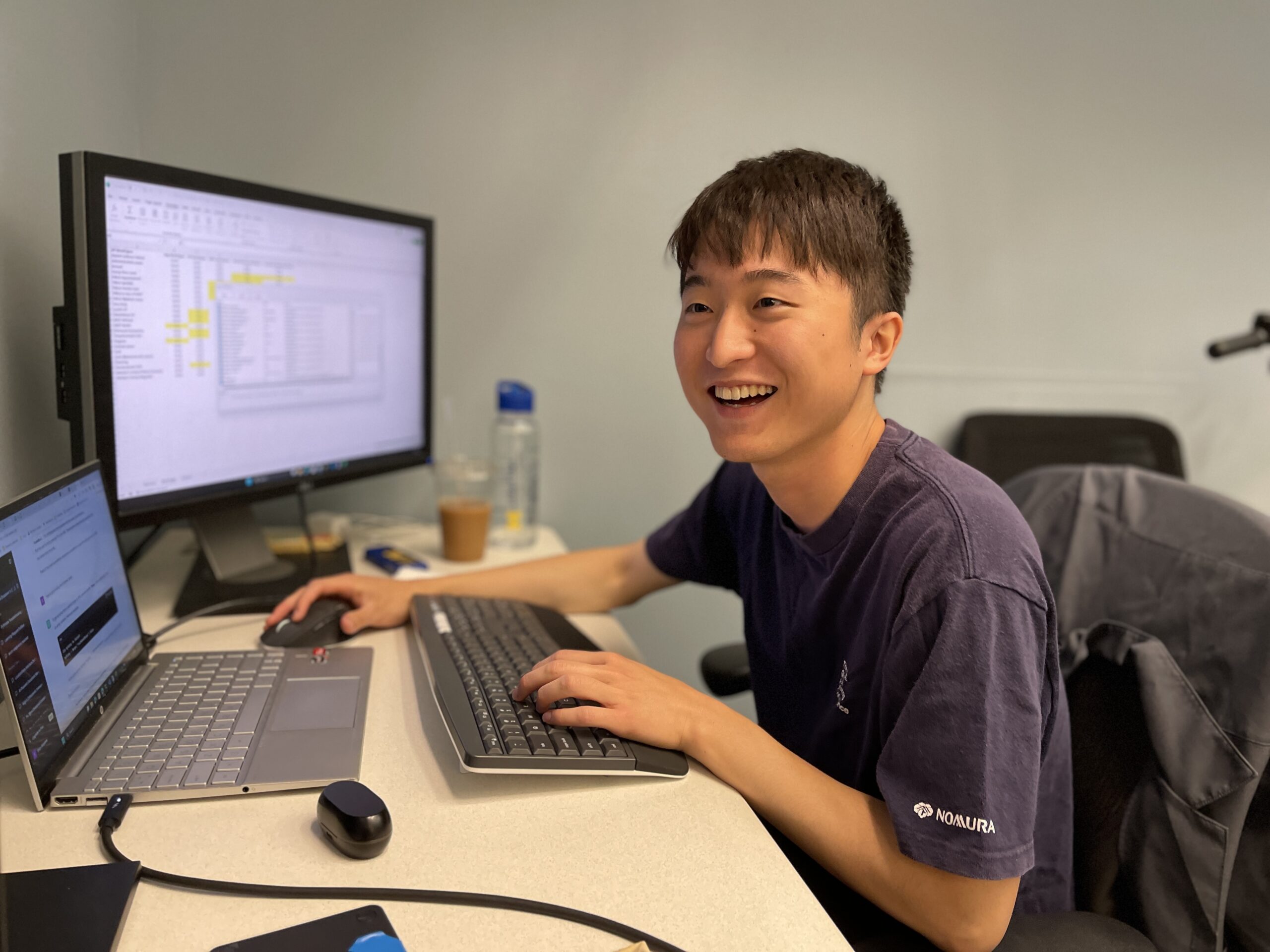Shun Akiyama, a Computer Science and Engineering student at U-M, reflects on his summer at CHEPS.

How’d you get involved in the Center for Healthcare Engineering & Patient Safety (CHEPS)?
While I was looking for what I was going to do during the summer, I found CHEPS on an email from the College of Engineering. I have studied Computer Science and Engineering, but I didn’t have many opportunities to apply what I had learned to real world problems. Since I was interested in healthcare, I thought it would be a great chance to learn healthcare as well as gain real-world experience.
What specifically about CHEPS made you want to join?
Since I started studying computer science, I have been looking for fields I can apply the skills to. Because my family member has worked at the intersection of healthcare and data science, the healthcare field is one of my areas I’ve wanted to explore more. When I saw the openings for CHEPS summer student research internship on the email and found out what CHEPS was, I thought I could know more about how computer science skills are utilized in healthcare contexts.
What project do you work on?
I’ve mainly worked on the State Hospital Staffing and Attendance Dashboard (SH Staffing) project, and I really enjoy working on it. This project aims to reduce the burden in hospital management caused by managing absenteeism and overtime. We are making a tool that generates the schedule and keeps track of the records so that managers in charge don’t have to spend extra time on figuring it out manually.
What in particular do you do on this project?
Since the objective of this project is to develop a staffing tool, everyone in the project writes code. We have also created documentation for future students, since we believe we will continue developing the tool for a while. I am personally in charge of error handling, which plays a role when a user takes invalid actions. I have needed to make it user friendly and create a user interface that tells a user what goes wrong and how to fix it in a clear way.
Do you think CHEPS has helped you with your schoolwork or vice versa?
It definitely reminds me of what I’ve learned in EECS classes and reinforces my understanding. More importantly for me however, my experience at CHEPS gives me context for how computer science skills are applied in the real world. When I took EECS classes in past semesters, I couldn’t picture how the skills and knowledge I was acquiring were used and my understanding was not solid. Throughout the semester in CHEPS, however, I’m getting more ideas. With better ideas of how what I’m studying is applied, my understanding is better.
What are you looking forward to at CHEPS?
I would love to see more functionalities added to the tool we are developing right now and for the tool to reduce more burdens on managers at hospitals. I’m looking forward to more hospitals using the tool as well!
What’s your favorite memory or aspect of CHEPS so far?
I’ve enjoyed working on the SH Staffing project, and I was glad when we visited a hospital and managers there were interested in using the tool. We sometimes hang out outside of CHEPS and some of the CHEPSters celebrated my birthday with me! It was a great memory.
What are some important takeaways you’ve learned from CHEPS?
I would say the most important takeaway is that what I’m learning at U-M actually helps people in the real world, but we need to apply it. It’s easy to forget why I’m studying what I’m studying, but this experience at CHEPS reminds me of the importance of that.
— Written by Shun Akiyama, CHEPS Student
